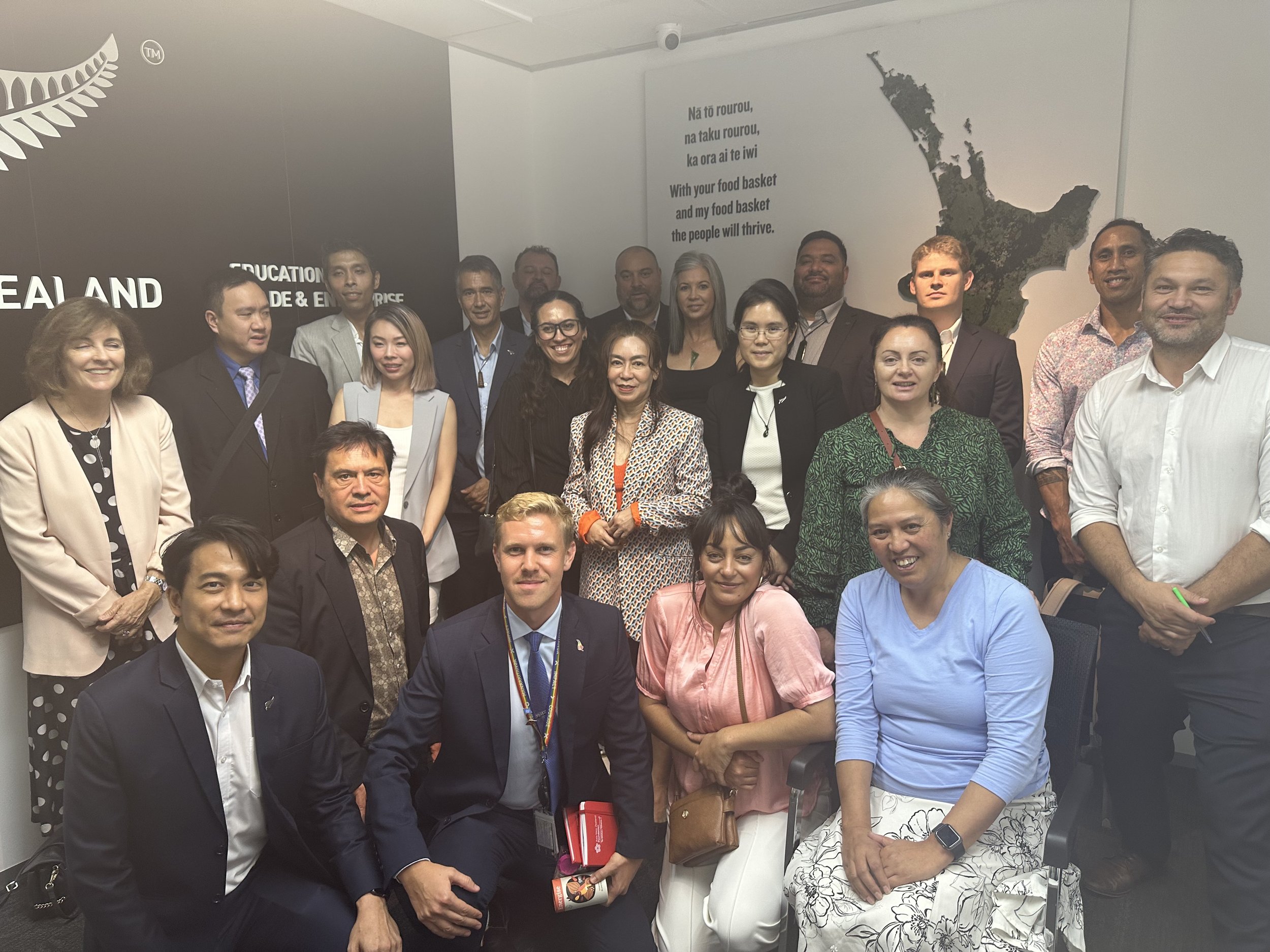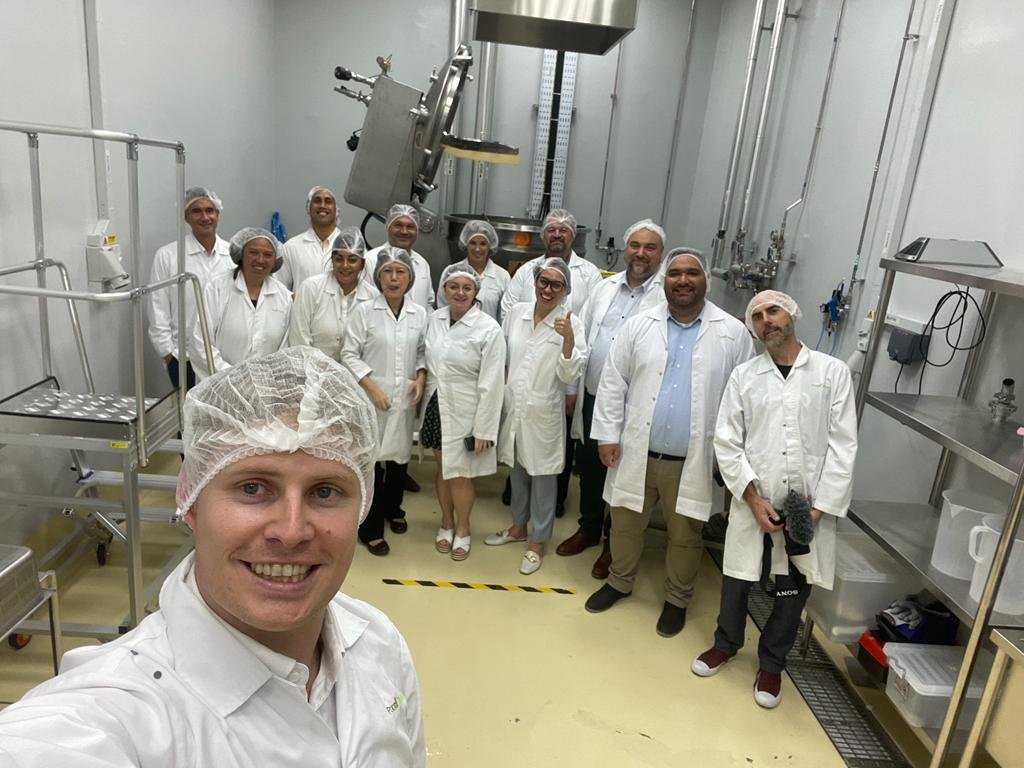Earlier this year, Wakatū whānau member Jackie Stephens (Ngāti Rārua, Te Ātiawa, Ngāti Toa Rangatira, Ngāi te Rangi) travelled to Singapore and Thailand as part of a ground-breaking delegation of ten Māori food and beverage entrepreneurs.
Organised by the Asia New Zealand Foundation Te Whītau Tūhono, with support from Te Taumata, the trip was designed to explore new markets, gain valuable market insights, and establish international connections for young business leaders.
Throughout the trip, the delegation engaged with various entities, including R&D food innovation hubs, distributors, exporters and importers, meeting with government officials and attending the THAIFEX trade show (Asia’s largest food and beverage trade show). This experience provided them with an in-depth understanding of the intricacies of the food and beverage sector, distribution channels, food innovation, and the interests of customers and potential collaboration.
The trip continued with the delegation's participation in the Asia New Zealand Foundation’s Young Business Leaders Initiative Summit in Thailand. The summit facilitated networking and learning opportunities for more than 70 successful entrepreneurs from Southeast Asia and New Zealand. This initiative has been a part of the Asia New Zealand Foundation's efforts on behalf of the New Zealand Government since 2011.
Chris Karamea Insley, Chairman of Te Taumata, expressed how the trade delegation offered an excellent chance for young exporters to grow their operations and increase the contribution of the Māori export market to Aotearoa New Zealand’s economy. He highlighted the long-standing Māori tradition of international trade, dating back to tribal seafarers establishing trade routes with Australia as early as the 1700s. Today, international trade accounts for one in four Māori jobs across the country, underscoring its significance for Māori-led businesses, communities, and whānau.
For Jackie, one of her highlights was showcasing our culture, our values and our businesses. "It was important for me to show these countries who we are as Māori and what we have to offer,” she said. "I loved the waiata sessions on the bus going from one venue to the next, concluding these sessions with karakia and koha.”
The delegates were fascinated by the innovative thinking occurring in these markets. The use of cellular technology to produce quality seafood and meats was a bit overwhelming but after gaining an understanding of the reasoning behind this made sense. This strategy stemmed from the rapid growth of their population, the high percentage of importing foods and the challenges posed by the pandemic, leading to cutting-edge solutions.
The journey also led the delegates to an important realisation: while New Zealand products were trusted in the international market, their branding lacked the distinctive Aotearoa identity. This insight inspired the delegates to include a focus on marketing and showcasing their heritage and culture more prominently in their products.
Jackie noticed a growing trend of people seeking health and wellness solutions through natural and nutrient-rich foods, which was further fuelled by the pandemic's impact on food supplies and sourcing.
Beyond the market insights and business connections, the most significant takeaway for Jackie was the emphasis of whanaungatanga. Throughout the trip, the delegates developed strong bonds, feeling like whānau, united by shared interests and aspirations. This experience created connections that surpassed everyone's expectations. Jackie expressed her eagerness to apply their new learnings to promote Māori food and beverages to a global audience and tautoko (support) each other through that mahi (work).
Looking back on her journey, Jackie encourages her whānau and all aspiring Māori to embrace such once-in-a-lifetime experiences, expand their horizons, and build their understanding of the world through first-hand experiences.



